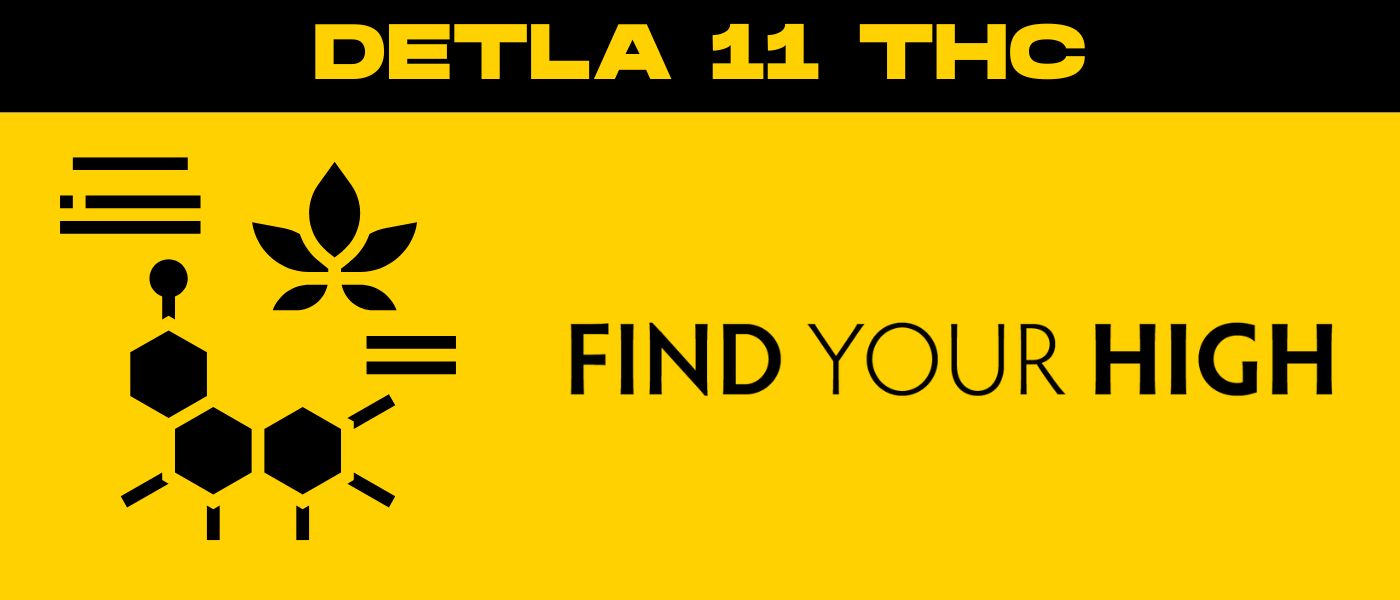Cannabis consumers and researching are becoming increasingly curious about cannabinoids beyond the well-known Delta 9 THC and CBD. One such cannabinoid gaining attention is Delta 11 THC.
Although it’s still relatively new in the world of weed, Delta 11 is being advertised as a potentially less psychoactive, yet still therapeutic, alternative to its more famous cousin, Delta 9.
In this post, we’ll dive into what Delta 11 THC is, how it compares to other cannabinoids, its effects, and potential health benefits, as well as the legal status and safety considerations surrounding its use.
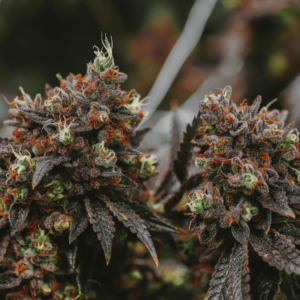
What Is Delta 11 THC?
Delta 11 THC is a minor cannabinoid found in cannabis. Like Delta 9 THC and Delta 8 THC, Delta 11 is a form of tetrahydrocannabinol (THC), the compound responsible for cannabis’ psychoactive effects. However, Delta 11 is less common in cannabis plants and is typically found in trace amounts.
While the cannabis industry is primarily familiar with Delta 9 THC, which is the most abundant and well-known form of THC, Delta 11 exists in smaller quantities. As a result, many manufacturers are experimenting with extracting and isolating Delta 11 for use in various cannabis products. Delta 11 THC shares some similar properties with other cannabinoids but also has some unique features that set it apart.
The Chemistry of Delta 11 THC: How It Differs from Delta 9
Delta 11 THC differs from Delta 9 THC in its molecular structure. Both cannabinoids have a similar chemical backbone and share the same chemical formula, but the position of the double bond in their molecular structure sets them apart. Delta 9 THC has a double bond at the ninth carbon chain, while Delta 11 THC has its double bond at the eleventh carbon chain.
This seemingly small difference in chemical structure can have a big impact on how the cannabinoids interact with the endocannabinoid system (ECS). The ECS is a complex network of receptors found throughout the body, primarily in the brain and immune system. Cannabinoids like Delta 11 THC bind to the CB1 and CB2 receptors, influencing mood, pain perception, appetite, and other physiological functions.
The position of the double bond in Delta 11 THC may result in a slightly different interaction with these receptors, possibly leading to a distinct set of effects compared to Delta 9 THC.
How Does Delta 11 THC Work in the Body?
Delta 11 THC, like other hemp-derived cannabinoids, works by interacting with the body’s endocannabinoid system (ECS). The ECS regulates a wide variety of functions, including mood, appetite, pain sensation, and immune response. Delta 11 THC binds to the CB1 receptors in the brain and central nervous system and the CB2 receptors in the immune system. These interactions influence the body’s balance, or homeostasis.
One of the primary ways that Delta 11 THC may differ from Delta 9 is in its psychoactive effects. Delta 9 THC is well-known for producing a strong “high,” which can sometimes be associated with anxiety, paranoia, and other discomforts, especially in higher doses.
Delta 11 THC, however, might offer a milder high, which could make it a preferable option for individuals who are sensitive to the more intense effects of Delta 9.
Delta 11 THC vs. Delta 9 THC: Key Differences
When comparing Delta 11 THC with Delta 9 THC, several important differences stand out:
- Potency: Delta 9 THC is the most potent form of THC and is known for its powerful psychoactive effects. Delta 11, on the other hand, may be less potent, resulting in a more subdued high.
- Psychoactive Effects: Delta 9 typically induces a more intense high, which can sometimes lead to feelings of paranoia or anxiety in certain users. In contrast, Delta 11 may offer a more balanced or mellow experience, making it an attractive option for those who want the benefits of THC without the overwhelming intensity.
- Medical Benefits: Both cannabinoids share potential therapeutic benefits, including pain relief, anti-inflammatory effects, and mood enhancement. However, Delta 11 may offer these benefits with fewer adverse effects or less discomfort compared to Delta 9.
- Legality: Delta 9 THC is regulated more strictly in many regions and is illegal in some countries and states. Delta 11 THC, due to its relative obscurity and lower potency, may fall under legal gray areas. In some places, it is sold legally, especially if it’s derived from hemp.
Ultimately, the key difference between these two cannabinoids comes down to potency and the nature of the high. Delta 11 is often perceived as a gentler alternative to Delta 9.
Potential Benefits of Delta 11 THC
While research on Delta 11 THC is still in its infancy, anecdotal reports and early studies suggest that it could offer a range of therapeutic benefits, similar to other THC variants:
- Pain Relief: Like Delta 9 and Delta 8 THC, Delta 11 may provide effective analgesic effects, helping to reduce pain and inflammation. This makes it a potential option for individuals dealing with chronic pain, arthritis, or other inflammatory conditions.
- Anti-Inflammatory Properties: Delta 11 could also help with conditions associated with inflammation, such as joint pain or muscle soreness.
- Appetite Stimulation: Delta 11, much like other forms of THC, may stimulate appetite, making it a potential treatment for individuals with conditions like anorexia or those undergoing chemotherapy.
- Mood Enhancement: Many users report feeling a sense of relaxation and mild euphoria after consuming Delta 11 THC, which may be beneficial for managing stress or anxiety.
While further research is needed, early indications suggest that Delta 11 THC could provide a gentler high than Delta 9 while offering similar medical benefits.
Delta 11 THC and Its Potential Side Effects
Like other forms of THC, Delta 11 can cause side effects, especially if consumed in excess. Some common side effects include:
- Dry mouth and red eyes: Typical of most THC products.
- Dizziness or lightheadedness: Some users report feeling a bit off-balance or dizzy.
- Anxiety or paranoia: Although less common with Delta 11 compared to Delta 9, it’s still a potential side effect, particularly with higher doses.
- Impaired coordination: Delta 11 can impair motor skills and cognitive function, so it’s important to avoid operating vehicles or machinery after consumption.
To minimize side effects, it’s recommended to start with a low dose and gradually increase as needed, especially if you’re new to THC.
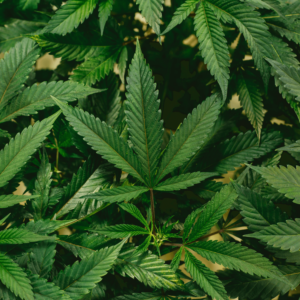
Is Delta 11 THC Psychoactive?
So, the question on everybody’s minds: Is Delta 11 THC really psychoactive? And the answer may surprise you…
Yes, Delta 11 THC is psychoactive, meaning it can affect your mood, cognition, and consciousness. However, its effects may differ from those of Delta 9 THC. Delta 9 is known for producing a strong, intense high, often accompanied by side effects like anxiety or paranoia.
In contrast, Delta 11 THC is believed to produce a milder psychoactive experience. Some users describe the high as more clear-headed and less intense, which could be beneficial for those who find Delta 9’s effects too overwhelming. While Delta 11 THC can still cause intoxication, many find it more manageable than other forms of THC.
The Legality of Delta 11 THC
The legality of Delta 11 THC is still somewhat ambiguous, largely because it’s a minor cannabinoid that hasn’t received as much attention as Delta 8 or Delta 9 THC. In the U.S., the 2018 Farm Bill legalized hemp-derived cannabinoids that contain less than 0.3% Delta 9 THC. This has allowed for the legal sale of hemp-derived Delta 8 and potentially Delta 11 THC in some states.
However, the legal status of Delta 11 THC can vary depending on local regulations. Some states have laws specifically banning Delta 8 THC, and it’s possible that Delta 11 could fall under similar scrutiny. If you’re considering using or purchasing Delta 11 THC products, it’s important to check your local laws to ensure compliance.
How Is Delta 11 THC Consumed?
Delta 11 THC can be consumed in various forms, similar to other cannabinoids. Some common consumption methods include:
- Vaping: Vaporizing Delta 11 THC allows for quick onset and a potent effect. Many users prefer vaping for its fast-acting nature.
- Tinctures: Delta 11 tinctures can be taken sublingually, allowing for quicker absorption into the bloodstream and faster effects compared to edibles.
- Edibles: Delta 11-infused edibles, such as gummies or chocolates, offer a longer-lasting but slower onset of effects.
- Topicals: Although less common for Delta 11, topical products such as creams and lotions may provide localized relief from pain or inflammation.
Each method of consumption has its own set of advantages and drawbacks, such as the onset time, duration of effects, and ease of use.
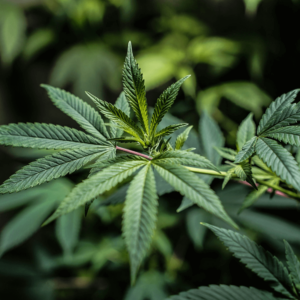
Is Delta 11 THC Safe?
Delta 11 THC is generally considered safe when used responsibly and in moderation. However, due to its status as a relatively new cannabinoid, there is limited long-term safety data available. As with any THC product, it’s important to purchase from reputable sources and ensure the products are third-party lab tested for potency and purity.
It’s also crucial to use Delta 11 THC responsibly. Overconsumption can lead to undesirable side effects, such as anxiety, dizziness, or impaired motor function. Always start with a low dose, particularly if you’re trying Delta 11 for the first time.
Where to Buy Delta 11 THC Products
When shopping for Delta 11 THC products, it’s essential to choose a reputable source that prioritizes quality and transparency. At Hyperwolf LA, we offer a selection of third-party tested Delta 11 THC products, ensuring that each item meets the highest standards for potency and purity.
Our Certificates of Analysis (COAs) are always available, giving you full access to the testing results for every product, so you can shop with confidence. We’re committed to complete transparency, so you know exactly what you’re getting with each purchase.
Plus, we prioritize customer satisfaction, with positive reviews and a track record of reliable service. Be sure to check your local laws, as Delta 11 THC’s legal status may vary, but rest assured that all of our products comply with applicable regulations.
The Future of Delta 11 THC
As interest in alternative cannabinoids grows, Delta 11 THC could become a more prominent player in the cannabis market. With potential benefits like milder psychoactive effects and possible therapeutic applications, Delta 11 may see increased demand from both recreational users and those seeking relief from various health conditions.
Further research is needed to fully understand its long-term effects and medicinal properties. However, as consumer interest in cannabinoids beyond Delta 9 continues to rise, we can expect Delta 11 THC to gain further attention in the coming years.
Conclusion
Delta 11 THC is an emerging cannabinoid that offers a potentially milder, yet still effective, alternative to Delta 9 THC. Whether you’re seeking its therapeutic benefits or simply looking for a gentler high, Delta 11 may be worth exploring.
As with any cannabis product, it’s important to approach Delta 11 THC with caution, especially given the limited research on its long-term effects. If you decide to try it, ensure you’re purchasing from trusted sources and always check your local legal regulations.
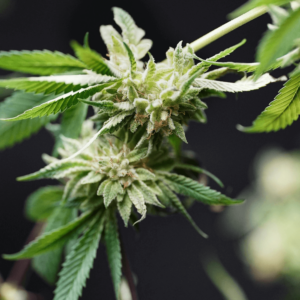
Frequently Asked Questions
1. Can Delta 11 THC get you high?
Yes, Delta 11 THC is psychoactive and can produce a mild to moderate high, similar to other THC compounds, but it may be less intense than Delta 9 THC.
2. How strong is THC 11?
Delta 11 THC is typically less potent than Delta 9 THC, offering a gentler, more manageable high, but its strength can vary depending on the product and dosage.
3. Is Delta 11 stronger than Delta-8?
Delta 11 is generally considered stronger than Delta 8, but less potent than Delta 9. It provides a more noticeable high compared to Delta 8, though still milder than Delta 9.
4. Does Delta 11 show up as THC?
Yes, Delta 11 THC will show up as THC on a drug test because it is a form of tetrahydrocannabinol, the same compound targeted by THC drug tests testing for THC metabolites.
5. Is THCA flower similar to Delta 11 THC?
No, THCA flower is non-psychoactive in its raw form, while Delta 11 THC is psychoactive and produces a high. THCA requires heating to convert into THC, unlike Delta 11 THC, which is active as consumed.




